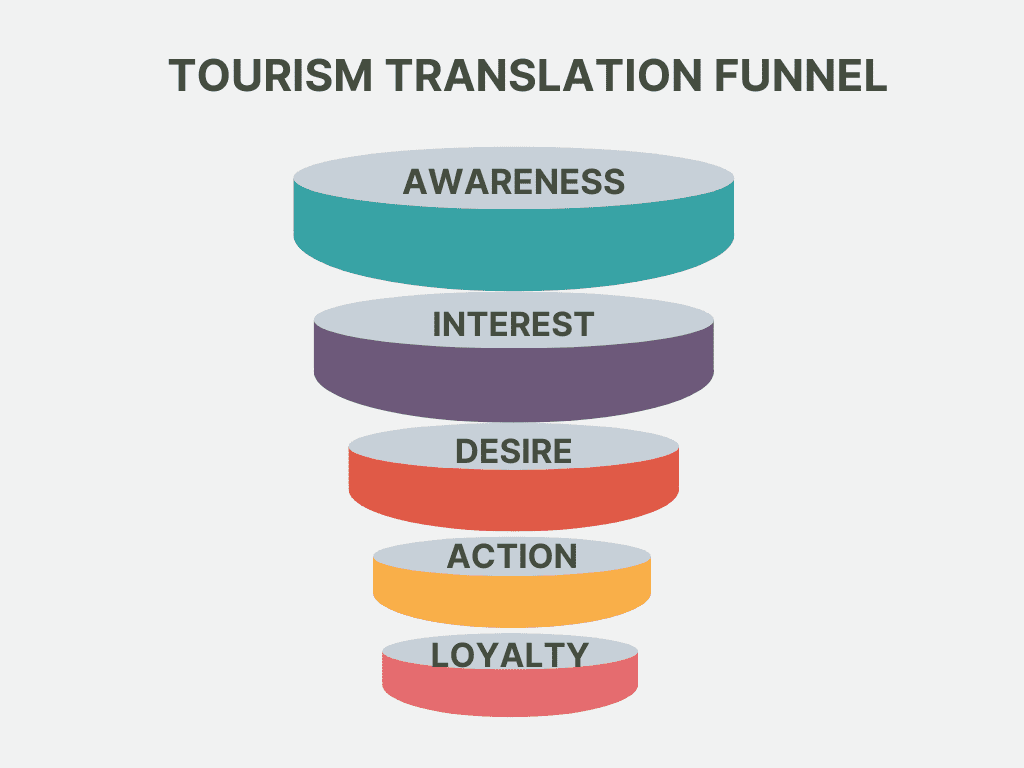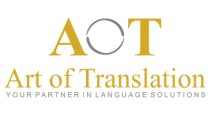Vacation – the time we are all waiting for, half of the year. And it goes by way too fast. If you like going on a trip during your time off, you may book your flights, hotels, and excursions. Or you’re calling an agency to organize everything for you. Either way, there is a whole industry behind your vacation: Tourism. And for many countries, it’s a big part of their economy.
The more the sector players can expand their outreach, the more they can boost their business. But, with more than 7,000 languages in the world, if they only communicate their offer in one language, they limit their potential growth. Therefore, the translation industry may be their best friend!
But tourism is deeply woven into local cultures. It requires a specific skill set to convey the proper message and attract tourists. As a result, translating tourism content is rightly considered a specialized translation. Keep reading to understand better why the translation industry is one of tourism’s most vital allies!
Snapshot of the Tourism Industry
With globalization and transportation means development, travelling is becoming more affordable. It enables new tourism options to emerge for more people. The middle wage has increased in some parts of the world, and so has the purchasing power. Plus, people like to travel. What’s better than changing your environment to disconnect during your vacation?
Some key data
Tourism is a solid industry. The pandemic showed that it is flexible too. As per the UNWTO World Tourism Barometer published in May 2023, international tourist arrivals reached 80% of pre-pandemic levels in the first quarter of 2023 alone.
In 2022, the travel and tourism sector contributed 7.6% to the global GDP. As per the World Travel and Tourism Council, it’s an increase of 22% from 2021, and it’s only 23% below 2019 levels. It represented 22 million new jobs in 2022. It is only 11.4% below 2019.
To give you an idea, in the US in 2019, international visitors spent $233.5 billion in the US, according to the US Department of Commerce. It’s almost $640 million injected per day in the US Economy. In 2022, the revenue of the tourism and travel market in the US was $175.43 billion. It won’t take a lot to close the gap this year!
Overview of the Tourism Landscape
First used at the beginning of the 19th century, the term “tourism” was related to the Grand Tour young British men from the upper class were taking through Europe to perfect their education. It designated all the services these “tour-ists” would use during their trip: food, accommodation, visit, etc.
Nowadays, this term is more generic. The sector is divided into many subcategories, such as business tourism, cultural tourism, religious tourism, etc. The industry encompasses an array of service providers: hotels, guest houses, restaurants, cruises, museums, airlines, amusement parks, travel agencies, and many more. And numerous countries all over the world work hard to attract tourists. As the above data show, tourism can generate lots of money and create many jobs.
So, we have a higher demand and more choices too! Then how to stand out as a tourism operator? Well, maybe the simplest would be tackling the major obstacle industry players face to grow their business: language barriers!
What is Tourism Translation?
Translating could be called a technical art that builds bridges between languages. Therefore, tourism translation would help erect overpasses between tourism operators and tourists. But this answer would be too simple.
Quick Definition of Tourism Translation
Translation is the process of converting the meaning of a written text from one language into another. It’s a discipline that is both technical and creative. It requires respecting the original message and ensuring its correct transcription into the target language while following the rules of the language.
Tourism-written content is often tightly knitted to the local context and culture. Tourism operators want to attract people to visit what their region offers. Some information may be general (i.e., directions and room types), while others may be more local, like regional traditions or food specialties.
Therefore, translators working on tourism content must understand deeply the source language and culture to catch all the nuances and specificities. Then, they transcribe them in the chosen target language, which they must master to find the right words. Because their objective is to get a target text that has the same effect on the target audience as the original text has on the source audience. The end goal: attracting tourists by conveying emotions in a way that is familiar to the audience!
However, sometimes, they may not have equivalent words in the target language. Or an identical meaning. For instance, “Tacos” became “Tacos” in many languages. But some other terms may require more explanation. One thing is sure, translating tourism content requires a specific skill set. That’s why tourism translation is a specialized branch of the translation industry.
Bird’s-eye view on tourism content
Let’s be more specific. Tourism written texts would involve any documents that may help tourists get information about their destination or their trip. The goal may be informative, marketing, technical, etc.
They come in different formats, such as physical, digital, audio, and visual. The first touch point is generally a Tourism Operator’s website. But it can also be the guide handed at the museum, the rules to follow in an amusement park or the hiking map of a national park. Many destinations often publish videos with subtitles to highlight the main attractions in their locality too. So, they may get subtitles translated into the language of the country they’re targeting.
The tourism industry encompasses many fields and can even be quite technical. Like for a guide in a historical facility. Or the environmental technologies used in a hotel. Without talking about fine dining menus made with fresh local ingredients. Translating this type of specific content requires expertise.
Why should Tourism Operators consider translating their Content?
The tourism operator’s goal is to attract tourists and help them enjoy their experience. It’s about emotions and sensations! Translators must find a way to make the target audience feel the same way without changing the original message throughout the sales funnel.

Create Awareness
If tourism operators limit themselves to their domestic market, they will soon reach their potential. People travel once in a while domestically, but they plan more and more trips abroad. So, it means that foreign tourists visit their own country too. Therefore, to get new clients, they must attract tourists from these countries, already planning to visit their region.
To this end, hotels, restaurants, and other attractions must help clients find them. One of the best ways to stand out in the sea of options provided by the Internet is to start by translating their website into the most popular languages. Businesses can check the outbound visitors’ countries of origin to target the languages they shall communicate in.
People will find them more easily while browsing search engines to plan their trips. Because more and more people do their research to customize their dream vacations. But that applies to travel agents too. Translating your forefront on the Web into one or more languages is creating awareness: the first step to scale your business.
Develop Interest
Once people discover your offer, they will want to dive deeper to see if it matches what they want. It’s when Tourism operators have an opportunity: to remove some language barriers that may push away potential clients.
If you only have the necessary information translated on your website or brochures (such as room type, prices, policy, etc.), travel agents, future tourists, and other planners may move to your competitor to try to learn more.
To develop interest, tourism operators must make their content accessible and user-friendly, such as blogs, information on things to do, etc. You want people feeling emotions at this stage, visualizing themselves savouring the restaurant’s famous dishes, enjoying the attractions, and so on.
Any content written to attract people in the company’s original language shall procure the same effect in other languages. And it requires professional translation skills. But it’s how tourism operators will prevent potential outbound tourists from checking the competition.
Cultivate Desire
Once businesses have picked the interest of vacation planners, they must cultivate it. People will want to verify that tourism operators deliver on their promise. So, the business reputation is at stake.
Business operators must build a sense of trust with quality translations. People may be interested in their product, but if their content is full of mistakes, doesn’t sound natural or is inconsistent, it will give a poor impression of the business. Customers may feel that the product is of low quality, which may tarnish the company’s image.
On the other hand, a clear, precise, consistent, and engaging translation will create a professional image. It will give clients the confidence that they will be in good hands. Business owners have control over this part of their reputation.
Because, of course, people may check other places, such as Trip Advisor or Google reviews with automated translation embedded on their pages. And nothing guarantees that the translated content will be accurate and valorizing for businesses.
Drive Action
Well, now, vacation planners feel confident. They are interested in the company’s products and services. They are already picturing themselves at their location. They want to book or buy. (One thing less to do on their planning list.)
At this stage, business operators (in any industry, shall we say) don’t want to miss their chance. Foreign tourists may not be able to call the tourism operator, or may not be in the same time zone. The checkout process’s translation must be clear, coherent, complete, and precise.
It can involve a clear rate structure, payment modes, cancellation policy, and any other details people shall know before using the product or visiting the property. Customers shall not have any doubts about what step to take. Any mistranslation may affect the business relationship with the customer even before its beginning.
Earn Tourists Loyalty
In any industry, Customer satisfaction and retention is the goal. Not only because it guarantees a volume of consistent business but because word-of-mouth is more powerful than any marketing means.
Business operators cannot interpret everything during their customers’ whole stay. However, they can make things easier. By translating into different languages as much content as possible. It can be the swimming pool rules, the region hiking trails description, the visitor guide, the restaurant’s menu, and more. But it’s also after the guests’ departure: thank you notes, satisfaction surveys, and review requests.
And when they get reviews, they shall translate them too. Who else speaks better about products and services than satisfied customers? When people are satisfied and have a great time during their tourism experience, they talk around them about it and keep the tourism operator’s address.
Hire professionals to translate your tourism content!
Translating tourism content requires a specific skill set. We probably don’t need to add much more than what was said. Translators must have a good grip on the source language and culture and master the target language. They must convey technical details, emotions, and nuances to attract and convert “vacation planners” into “visiting tourists”. That’s how the translation industry can best support the tourism sector.
Translation agencies are probably the best partners for tourism operators. Especially the ones that offer specific tourism services. It means they know the industry, already work with a team of specialized translators and can help them translate their content into multiple languages.
AOT offers tourism translation services and strives to help you provide the best experience to your customers. Contact us to learn more about our expertise.

Reference
https://www.e-unwto.org/doi/abs/10.18111/wtobarometereng.2023.21.1.2
https://word-connection.com/4-reasons-why-translation-for-tourism-is-so-important/
https://www.statista.com/statistics/1174444/tourism-industry-market-size-us/
https://www.indeed.com/career-advice/career-development/sales-funnel-stages
https://www.intertranslations.co.uk/the-importance-of-tourism-translation/


